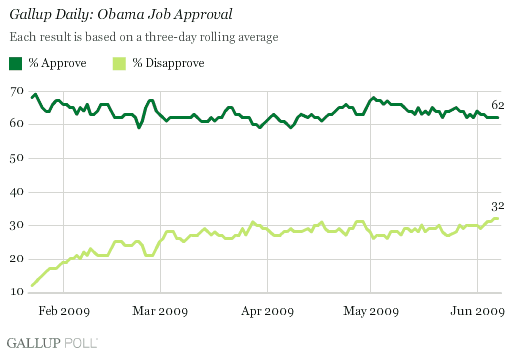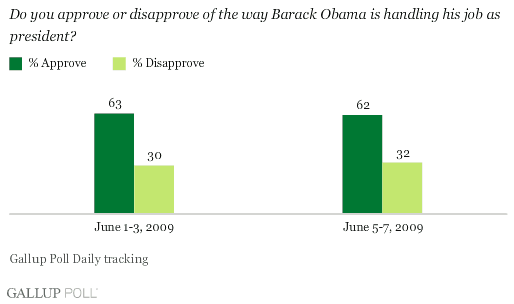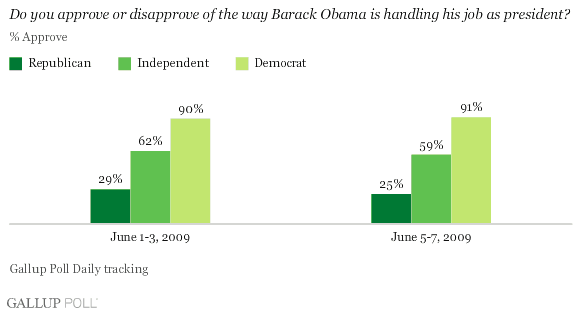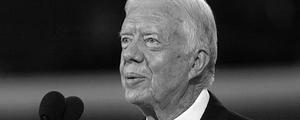PRINCETON, NJ -- There has been little change in President Barack Obama's U.S. job approval rating since his highly publicized speech in Cairo, Egypt, last Thursday. Obama's approval rating in Gallup Poll Daily tracking averaged 62% from Friday to Sunday of this past week, virtually unchanged from the first three days of last week -- before the speech.

President Obama's Cairo speech was given front-page treatment in the U.S. (and around the world), leading off most news broadcasts and appearing at the top of news Web sites. All of this visibility does not, however, appear to have made much difference in the way Americans view their president -- at least not according to Gallup Daily tracking interviewing conducted through Sunday.
Obama's approval rating for the first three days of last week, Monday through Wednesday, was 63%, with a 30% disapproval rating. For the final three days of the week, Thursday through Sunday, his approval rating was 62%, with a 32% disapproval rating.

Obama's current 32% disapproval rating is the highest of his administration, although it has been at 31% several prior times in Gallup Poll Daily tracking since he took office.
For the post-speech, Friday to Sunday, time period, the political breakdown in Obama approval followed the usual pattern: a very high 91% approval among Democrats and a low 25% approval among Republicans, with independents in the middle at 59% approval. Comparing these numbers to those from the first three days of last week shows that Obama's approval fell slightly among Republicans and independents, while gaining a point among Democrats.

Gallup updates Obama Job Approval each day at 1 p.m. ET, based on interviews conducted each prior night. Weekly updates by demographic subgroup are also posted each Tuesday on Gallup's Politics News page.
Survey Methods
Results are based on telephone interviews with 1,496 national adults, aged 18 and older, conducted June 1-3, 2009, and 1,544 national adults, aged 18 and older, conducted June 5-7, 2009, as part of Gallup Poll Daily tracking. For results based on the total sample of national adults, one can say with 95% confidence that the maximum margin of sampling error is ±3 percentage points.
Interviews are conducted with respondents on land-line telephones (for respondents with a land-line telephone) and cellular phones (for respondents who are cell-phone only).
In addition to sampling error, question wording and practical difficulties in conducting surveys can introduce error or bias into the findings of public opinion polls.
